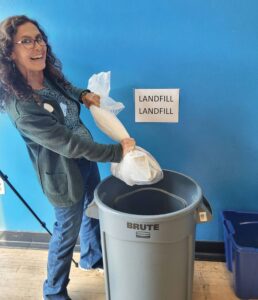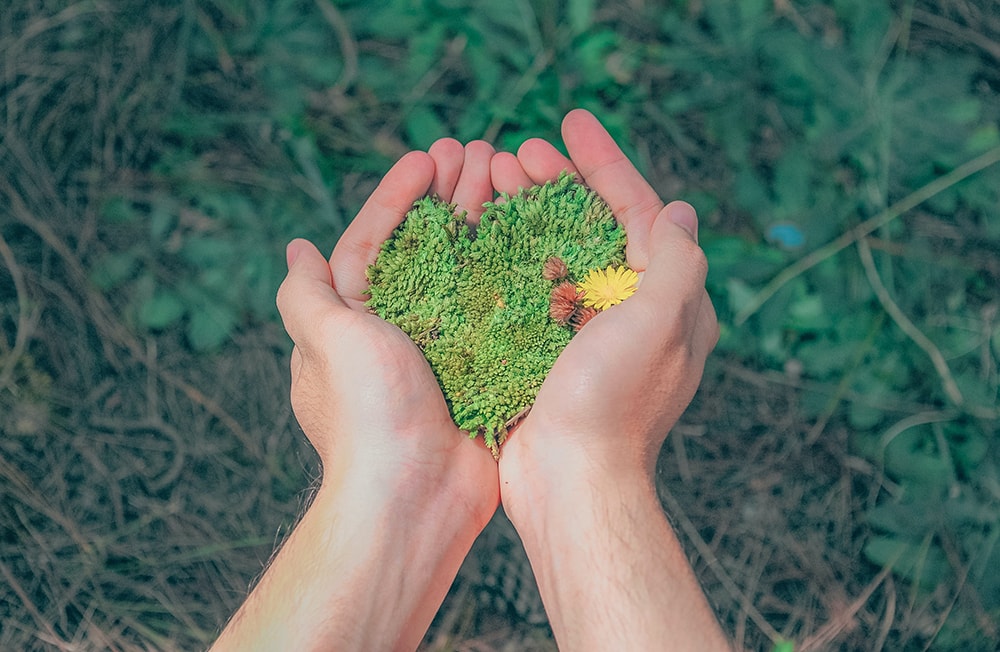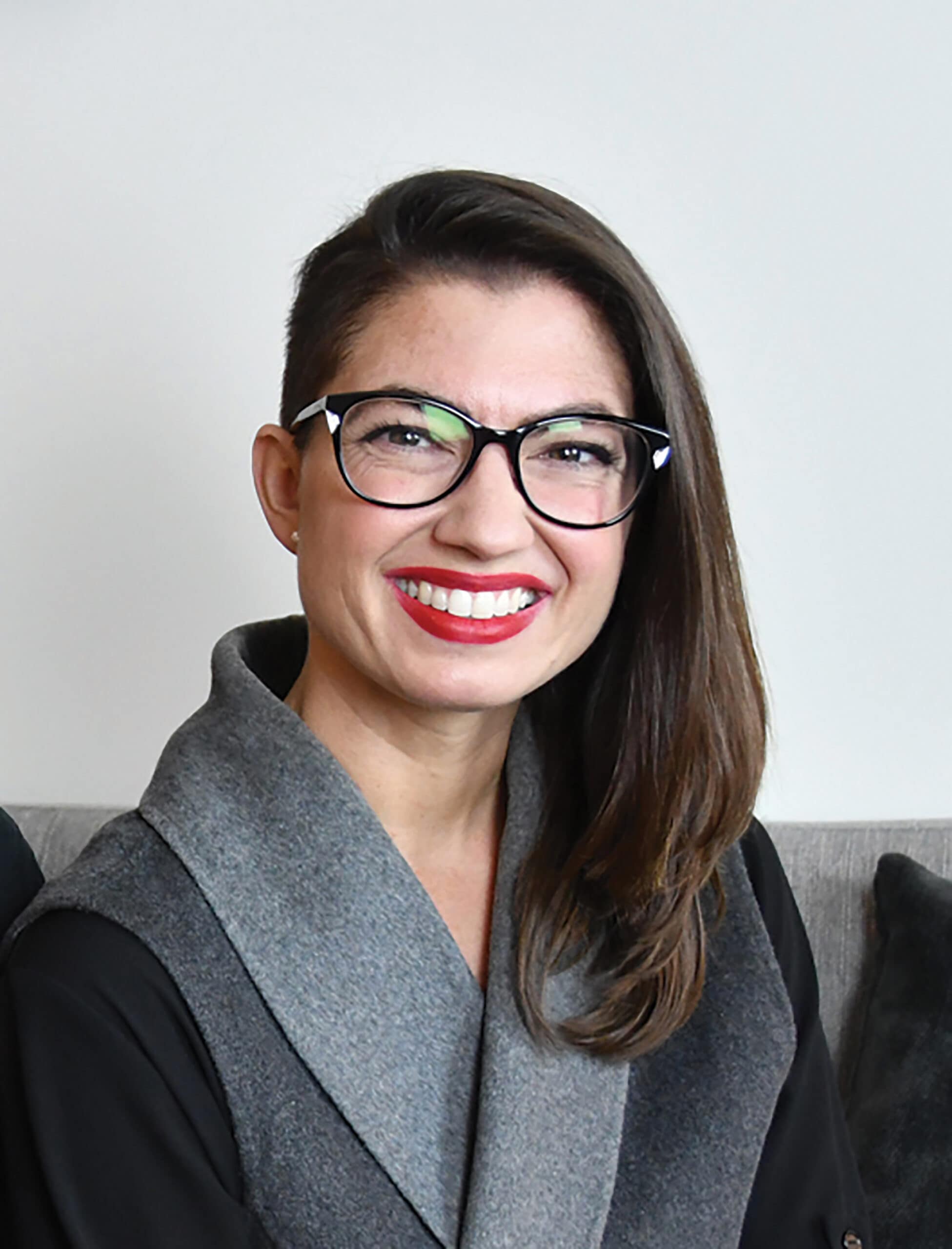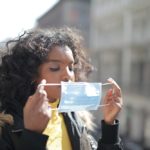As I began to think about themes for the year ahead, I wanted to explore what sustainability or “earth care” throughout my life would, or could, look like.

Connie McOsker. (photo: Reverend Amanda)
Someone who has made earth care a priority and theme in her own life is Connie McOsker — also known as taiko drum facilitator, Garden Church trash bin sorter (and pastor), and deep environmentalist — who is also married to LA City Councilmember for the One-Five (District 15), Tim McOsker.
Connie describes herself as “one person with some extreme practices.” She further explains that, while one person cannot save the earth alone, she understands that we can have (more) complete control over our behavior — and how that relates to our earth.
You may be wondering what earth care has to do with what we usually chat about in this column, “people care.” But I assure you that the same values that inspire and ground us in caring for humans inherently extend to community care and earth care — the value that there is something bigger than ourselves. Producing as close to zero waste as possible is Connie’s everyday goal. So, let’s dive in to learn how she reduces her environmental footprint.
I’m always in awe of your commitment to producing zero waste. When did you realize you needed to live an ‘earth care’ lifestyle?
Around the 5th grade, I joined the ecology club at my school. It was there during those meetings and activities that my awareness took root and grew. It was through that experience that I really understood how one person can make a significant impact.
As an adult, especially as parents raising five kids, our family tries to be intentional about all aspects of our lives. So yes, that meant cloth diapers. Convenience is great, but often, the consequence of convenience is harmful to our environment.
What are some misconceptions you’d like to clear up?
Let’s start with the most common practice and misconception around — recycling (specifically in the City of LA). Only about nine percent of what we place in the blue bin actually gets recycled. Many items we think are recyclable aren’t. The best way to recognize what can and can’t be recycled as far as plastic is by looking for the number in the middle of the triangle on items. Number 1 (most water and soda bottles), number 2 (milk and detergent containers), and number 5 (yogurt containers) plastic categories are accepted by most recyclers, while numbers 3, 6, and 7 aren’t recyclable at this time and not accepted by recyclers.
Let’s chat about those City of LA green bins for your “organic” waste. While primarily for your food and yard waste — paper food containers (non-plastic) can go in these green bins, like pizza boxes. Other things like greasy napkins and wooden chopsticks can also be chucked in. What you don’t want to throw in the green bins is any plastic.
What are some simple changes we can make?
You can’t try to change everything about your habits all at once. Try changing one thing, get comfortable with that, and then look for something else.
One of the first steps we can take is to try and be a good refrigerator monitor. The fridge is where a lot of waste happens, so start there. Don’t over-buy. Put things in the freezer before they go bad. Another practice I follow is asking for no ice when served water. Ice often gets left in glasses and thrown away, wasting valuable water. It sounds small, but all of these things add up! And please [avoid using] straws.
Don’t shy away from being the one who tries to alter convention. A good example of this is dry cleaner plastic bags — they are so excessive. After being told clothes had to have some protection, I requested using a cloth wrap instead. It took a little brainstorming and collaboration, but we found an alternative to accomplish the same result — reducing our waste.
You are also pretty infamous for bringing your own reusable utensils and even plates and cups to events. What’s the reasoning for that practice?
At some point, I started keeping the trash I generated with me all day. This practice created a level of awareness of how much waste I was producing. I got to thinking: What if there was no sanitization department? Where would I dump all of this trash? There needs to be an intentional shift to care about something bigger than yourself.
______________________________________________________
Recently, Connie volunteered at a Day of Thanks event for service providers hosted by the nonprofit, Harbor Connects. At the event, attended by about 100 people, the amount of waste was less than a bag (see picture). Everyone received reusable utensils and water bottles. Everything else went to compost or went to recycling. While she took charge at this event (and many similar events), it is clearly possible to accomplish these goals, individually and collectively.
Connie is also very active at The Garden Church on 6th Street in Downtown San Pedro. In 2022, they processed over 9,200 pounds of compost and returned it to the earth to grow more. Gardening compostables include organic waste without oils, meat, or dairy (which differs from the City of LA’s organic waste). You can reach out to Connie directly to learn more or ask questions. Her email is pastor@gardenchurchsp.org.
These changes, small and large, add up to a better cared-for earth — and community. If I could have one outcome of this column, it would be to move us all towards thinking about — and impacting — things greater than ourselves: humans outside of our family/immediate orbit… our community… our earth.
How might you implement a new earth care practice? Let me know what you think at info@sheikhimpact.com. spt







Comments